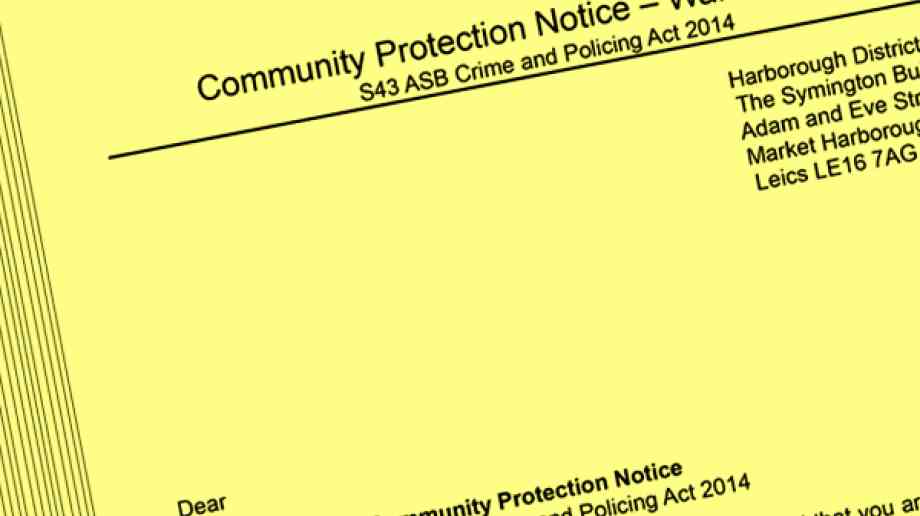Sue Robb of 4Children talks to Julie Laughton and Alison Britton from the Department for Education about the role of childminders in delivering the 30 hours free entitlement.
‘Postcode lottery’ in councils’ use of new ASB powers

The Manifesto Club has published new research on Community Protection Notices and found that less than 10 per cent of councils have a policy in place that specifically deals with CPNs and CPWs.
Based on FOI requests to all England and Wales local authorities, the research found that only 7.9 per cent of councils have a policy in place that specifically deals with CPNs and CPWs, and only one in five are currently issuing CPNs without a policy to guide their use.
Encouragingly, 70 per cent of councils indicated that there is some system of oversight in the issuing of CPNs, most commonly that the CPN is reviewed by a senior officer. However, 15 councils (4.4 per cent) indicated that there is no system of oversight to ensure that CPNs are being used correctly, meaning that discretion is left entirely to individual officers.
The majority of councils used pre-printed templates for the issuing of CPNs, which the Manifesto Club report argues means a danger that CPNs could be ‘issued in haste’. Only 23.9 per cent of councils said that new documents are generated for the issuing of CPNs.
The report concludes that ‘there is a postcode lottery’ of CPN practices currently being undertaken, and that flexibility ‘should not be at the expense of standardised processes to ensure these sanctions are being applied fairly across England and Wales’.
Vicky Heap, reader in Criminology at Sheffield Hallam University, who led the research, said: “Despite being available to authorising bodies since 2014, there is very little evidence about how Community Protection Notices are utilised and consequently experienced by recipients. Our research begins to address this gap in understanding by exploring both the issuing process and perceptions of recipients. We uncovered great variations in issuing practices, which could lead to an uneven application of the powers across England and Wales. Furthermore, our work with recipients highlights the need for greater procedural safeguards to reduce disproportionality and bolster due process. Ultimately, our findings suggest that more extensive research is required to better understand the use and impact of these coercive powers.”
Company Focus
Brussel Lake Paragon is an esteemed software development company at the forefront of innovation, serving clients with distinction and dedication. With a rich history of excellence and a commitment to pushing boundaries, Brussel Lake Paragon has earned acclaim from esteemed entities such as the Mayor of London, solidifying its position as a leader in the industry.
Event Diary
UKREiiF has quickly become a must-attend in the industry calendar for Government departments and local authorities.
The multi-award-winning UK Construction Week (UKCW), is the UK’s biggest trade event for the built environment that connects the whole supply chain to be the catalyst for growth and positive change in the industry.
The organisers of the world’s largest dedicated hydrogen event, World Hydrogen 2024 Summit & Exhibition have announced it’s return to Rotterdam in May 2024, with an expansion of a whole extra summit day. Sustainable Energy Council (SEC) are partnering with the Government of the Netherlands, the Province of Zuid-Holland, the City of Rotterdam, and the Port of Rotterdam to host an extended, larger scale Summit in 2024, to expand the event to meet the surging demand.
Supplier Profiles
Geo Energy
At GeoEnergy Design, we're on a mission to disrupt the traditional way heating and cooling ha
In the heart of our community, Waste Management stands as a testament to sustainable environmenta
Latest Features
Professor Harith Alani, director of the Knowledge Management Institute at the Open University explains how AI can be used for good and bad.
Alex Lawrence, head of health & social care, techUK sets out techUK’s Five Point Plan for CareTech.
















